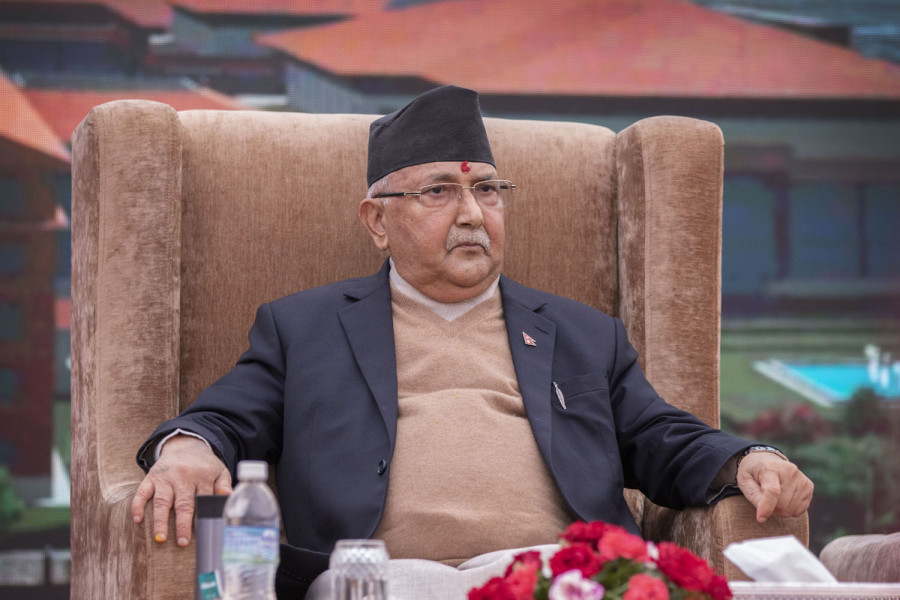Editorial
Breaking with conventions
This spontaneous in-party challenge to Oli’s one-man show is something to be celebrated.
The 10th CPN-UML general convention in Sauraha, Chitwan in November 2021 cemented KP Sharma Oli’s hold on the party machinery. At the time, the old UML party had just been revived following the breakdown of the Nepal Communist Party that he co-chaired with Pushpa Kamal Dahal. This was followed by the exit from the UML of senior leaders and former prime ministers Madhav Kumar Nepal and Jhalanath Khanal. There was now no one to check Oli’s growing ambition and power in the country’s largest communist party. So, before being reelected party chairman at the 10th general convention, he handpicked the UML office-bearers and central committee members. Yes, there were a few voices of opposition, for instance from the likes of Bhim Rawal and Ghanashyam Bhusal. They had declared their candidacies for vital posts (Rawal, as a rebel candidate, was in fact standing against Oli for the post of party chair.) Oli ordered the convention delegates not to vote for them. That is exactly what happened. This was a depressing outcome for a party which, post-1990, practised the most vibrant internal democracy among the country’s main democratic forces.
But as the party is in the process of picking leadership in seven provinces, Oli’s grip seems to be loosening. At the recently concluded provincial conventions in Lumbini and Bagmati provinces, there were vigorous competitions for election to the regional committees. Similar scenes are unfolding at the ongoing conventions in Karnali and Koshi provinces. In all these places, the party rank and file defied the chair’s diktat that such regional committees be elected through ‘consensus’, a code word to place Oli’s loyalists at the head of these executive bodies. This spontaneous challenge to the chairman’s authoritarian ways is something to be celebrated. Last year, it appeared that the country’s biggest communist force was becoming a ‘one-man show’. But thanks to its history of robust internal democracy, UML members soon began to chafe at the chairman’s unilateral ways. Now even those deemed closest to the UML chairman dare to support candidates from outside the Oli camp.
That is the welcome bit. It would have been better still if the convention delegates could freely cast their ballots for candidates from outside set panels. Curiously, there have been videos circulating on social media that show senior party leaders making such panels. This was happening even after the UML outlawed such panels and threatened to annul the candidacies of those affiliated to them because these panels are basically factions centred on powerful leaders. So while it is good to see the courageous challenge of Oli's party leadership, the UML is still not back on its old course when panels were formed along ideological lines rather than around personality cults—and when most vital party decisions were made through coercion-free voting. Yet the UML is on the right path. Oli has tried to systematically suppress voices of opposition in the party and prevent the emergence of a challenger to his authority. He has not wholly succeeded. In the long run, the party will be stronger for it.




 10.12°C Kathmandu
10.12°C Kathmandu













